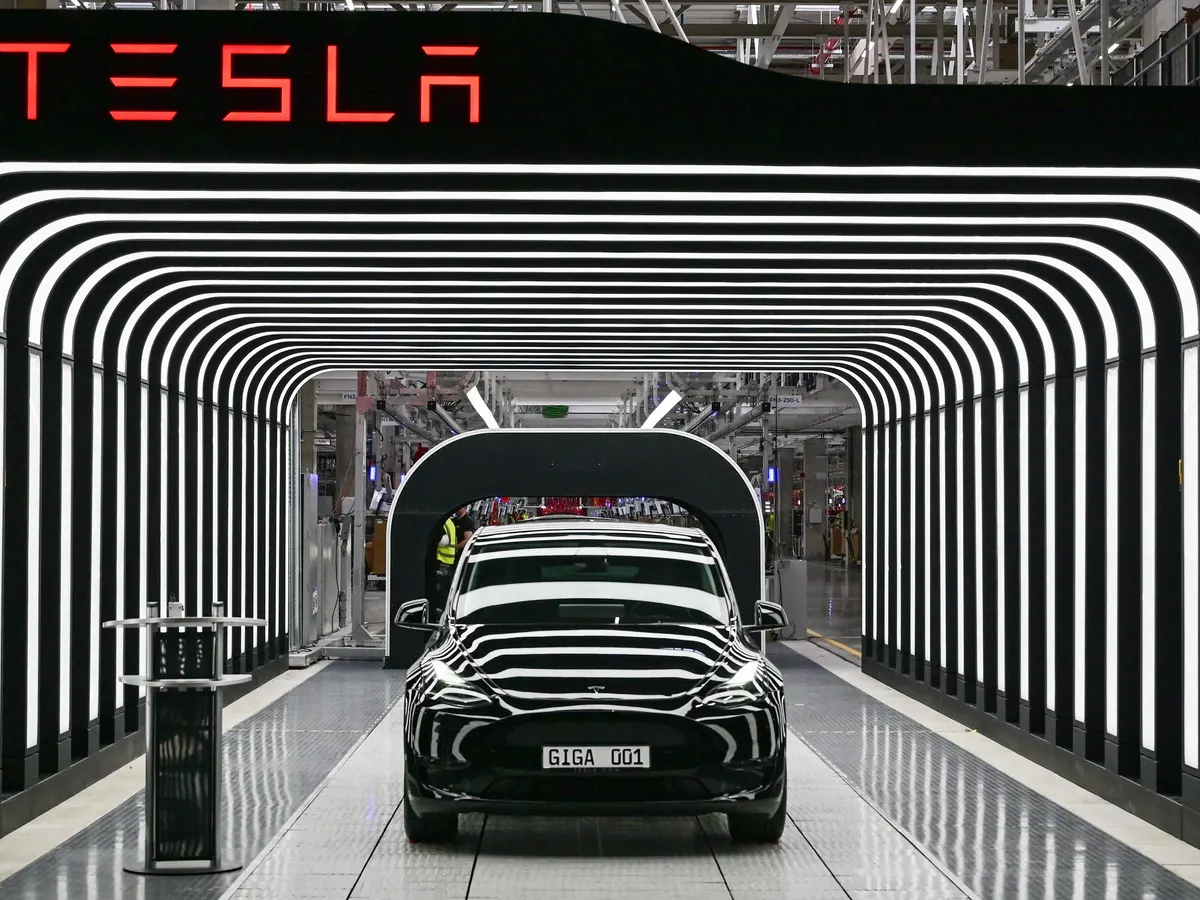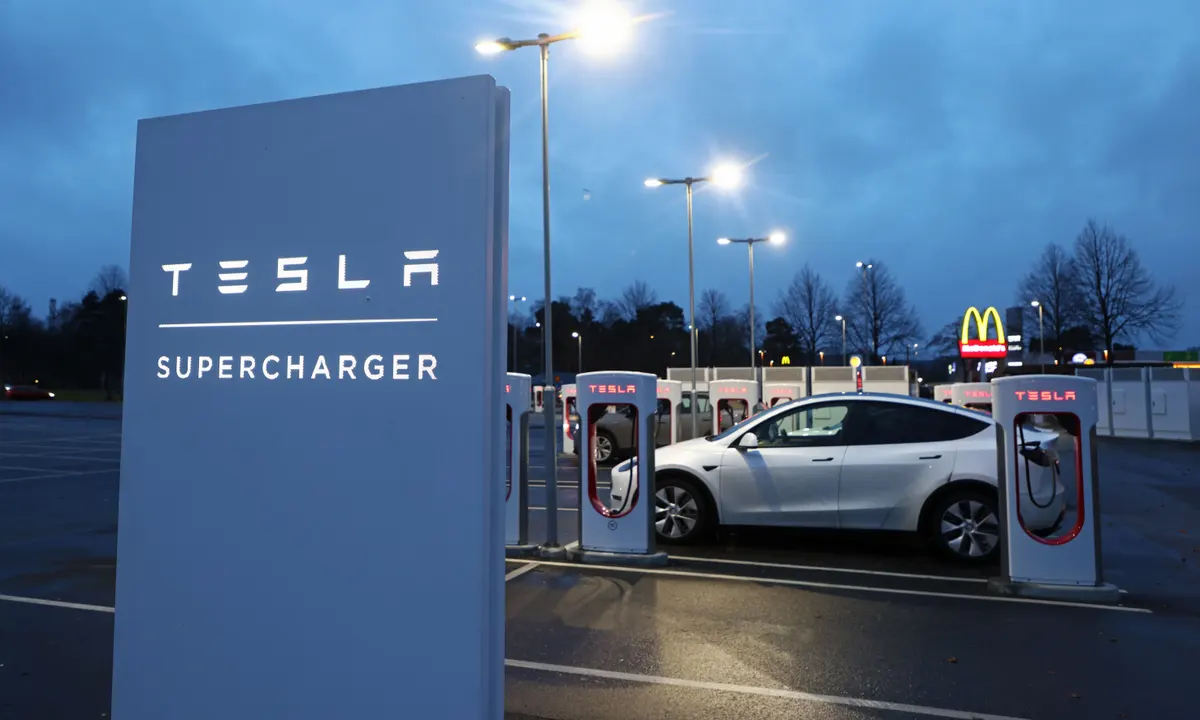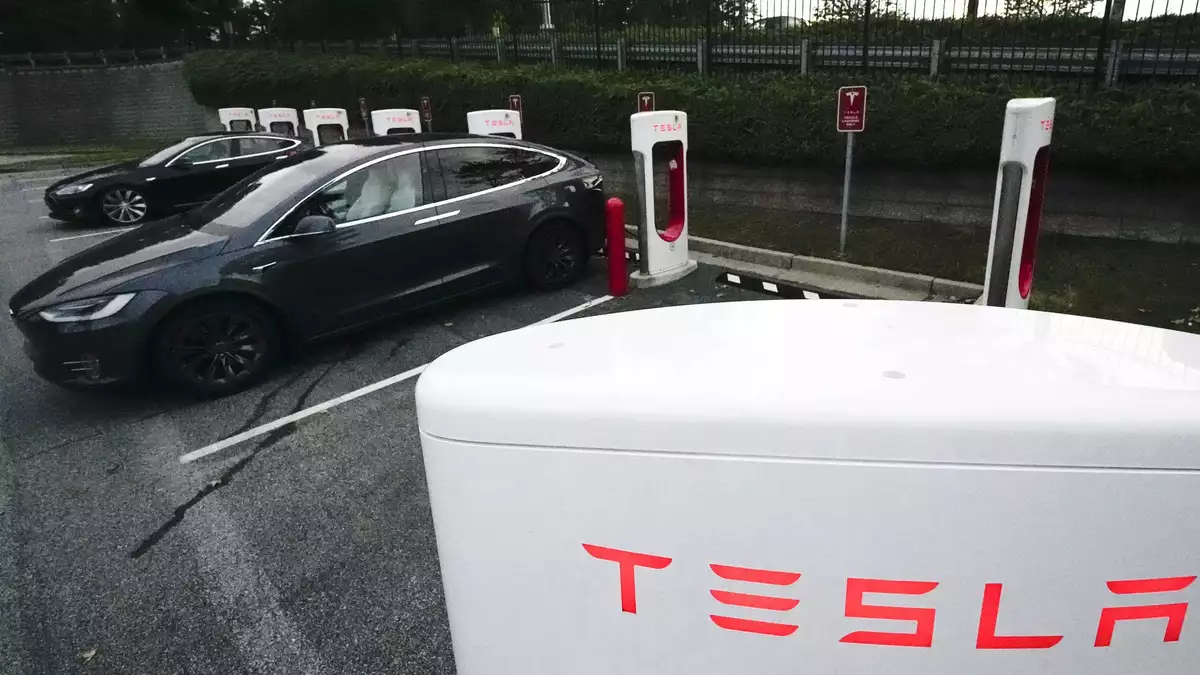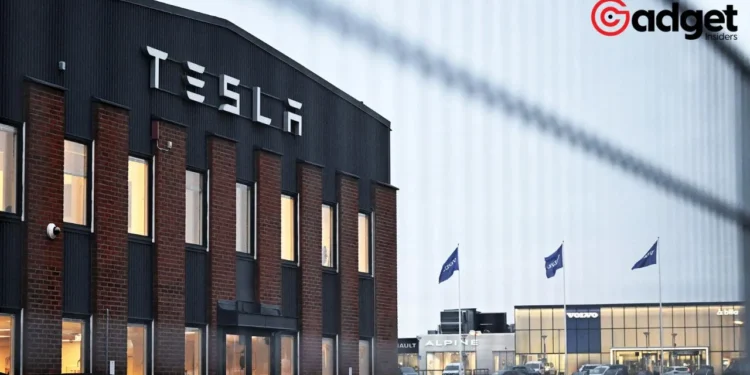The electric vehicle (EV) industry, led by giants like Tesla, is navigating through a tumultuous phase marked by strikes, production slowdowns, and shifting consumer demands. Tesla, a name synonymous with innovation in the electric car market, finds itself amid a significant labor dispute in Sweden.
The company’s refusal to sign a collective wage agreement has sparked a nearly four-month-long strike, which has now escalated to include a blockade of Tesla charging stations across Sweden.
Swedish unions, representing a significant portion of Tesla’s workforce, have expressed their frustration over the company’s reluctance to embrace collective bargaining agreements. This dispute is not just a local issue but represents a broader conflict between Tesla and several unions dedicated to upholding Sweden’s robust labor model.
Tesla CEO Elon Musk, known for his non-traditional approach to management, has consistently opposed the unionization of the company’s global workforce, which numbers over 127,000.
The strike, initiated by the metal workers’ union IF Metall, began with mechanics at the company’s repair shops and has since gained momentum, drawing support from various sectors including postal and dock workers.
The Swedish Union for Service and Communications Employees (Seko) announced decisive actions to disrupt work on Tesla charging stations, a move that could significantly impact its operations in the region.
Rivian and Lucid Face Production and Demand Challenges
In a related development, electric vehicle startups Rivian and Lucid are grappling with their challenges. Rivian, backed by Amazon.com and known for its R1T pickup trucks and R1S SUVs, has announced a temporary production halt to upgrade its production line.
This decision comes in response to a production forecast for 2024 that falls well below analyst estimates, a clear sign of the challenges facing the EV market.

Lucid, competing in the luxury EV segment, faces similar hurdles. Despite slashing prices on its Air electric sedans, Lucid’s production forecast for 2024 is also significantly lower than expected.
Both companies have cited macroeconomic challenges, including high-interest rates and geopolitical risks, as key factors influencing consumer behavior and impacting sales.

Tesla: The Broader Impact on the EV Market
These developments reflect a broader trend in the EV industry. Major players like Ford and General Motors, along with Tesla, have noted a slowdown in EV demand. This plateauing demand has triggered a price war, with companies reducing margins to attract customers.
The industry, which once enjoyed a rapid growth trajectory, is now facing the realities of a more cautious and price-sensitive consumer base.
Swedish Tesla strike expands to include charging stations https://t.co/eyysbCgofP
— Le Monde in English (@LeMonde_EN) February 22, 2024
Tesla’s labor dispute in Sweden and the production challenges faced by Rivian and Lucid indicate a period of adjustment for the EV market.
As companies navigate these challenges, the industry is poised for a reevaluation of its strategies and approaches to meet the evolving demands and expectations of a global consumer base.

The outcome of these disputes and strategic shifts will likely shape the future trajectory of the electric vehicle industry.










